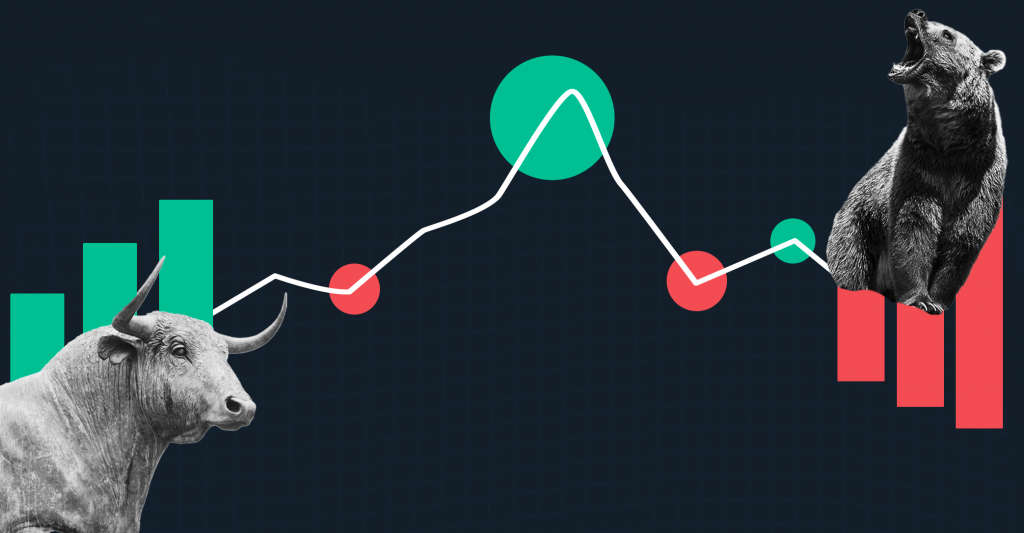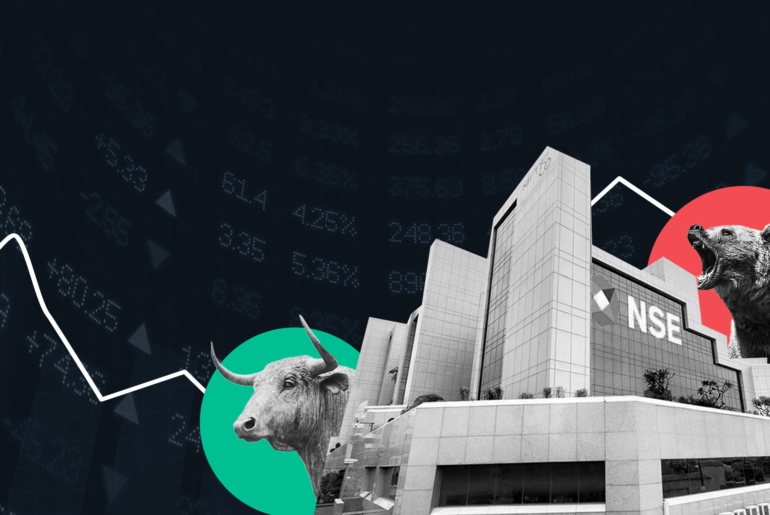Last Updated on Aug 26, 2021 by Aradhana Gotur
Investing is a way to make money work for you, and it is the need of the hour. However, with respect to an individual’s income or the risk-taking ability, there is no one-size-fits-all investment product. Therefore, one needs to make a choice of investments that fits one’s risk profile and the derived investing plan, keeping in mind the financial goals.
Broadly, you can choose from the various asset classes – assets are a group of investments that behave in a similar way and/or are influenced by similar factors. Equity and debt are considered the traditional asset classes are easily accessible, making them the largest-owned and preferred asset classes. In this article we explore the difference between equity and debt.
This article covers:
- How do equity markets work ?
- Who can invest in equity markets?
- How to invest in equity markets?
- How do debt markets work?
- Who can invest in debt markets ?
- How to invest in debt market?
- Key differences between debt and equity market
Table of Contents
How do equity markets work?
In the equity markets, you invest in shares of the listed company. With the purchase of a company’s stocks, you become its shareholders, i.e., part-owner of the company.
Risk and returns of equity
Returns are the reason why people invest. You can earn returns on your equity investments in the form of dividends or make profits by selling the shares in the market at a higher price than what you purchased them at, which is called capital gains.
It should be noted that stocks are subject to as much volatility as price fluctuations in the broader market. Equity investments do not guarantee any return or yield. In fact, equity is riskier than debts.
The attraction for the product comes from the fact that the higher the risk, the higher is the potential for returns. Equities have traditionally returned the highest among other asset classes, averaging around 12-15% across global markets.
If you are investing for a short period, equities can be highly risky and volatile. Historically, investors have profited by staying invested for the long term.
Who can invest in equity markets?
An investor with the following characteristics can consider the equity market to make investments:
- If you preferably have a long-term investment horizon, i.e. 5-10 yrs.
- If you have a dynamic risk profile, i.e., a high level of risk tolerance
- If you are young and have lesser responsibilities and financial obligations
- If you have enough funds to withstand the volatile cycles of the market
- If you can dedicate time to research about the stocks
- If you are patient enough to reap the rewards in the long term
Researching the equity market before investing in them requires dedicated efforts.One should carefully study a company’s financial statements and management values. Most relevant information can be accessed by reading the financial statements of the company.
How to invest in equity markets?
To enter the equity market, an investor primarily has three options:
- Investing directly in the companies listed at the stock exchanges: You can buy or sell company stocks directly using your online trading and Demat accounts. You may transfer the requisite stock purchase amount from your bank account to the trading account. Once you buy the stock, it will be credited to your Demat account. In case of a stock sale, the requisite stocks will be debited from your Demat account.
- Investing through equity mutual funds: You have the option of choosing from a wide variety of funds such as ones based on market capitalisation, sector-based or even asset-based (such as debt funds or Gold ETF). There are also customised funds such as multi-cap funds, balanced funds, arbitrage funds and others, to cater to the varying needs of investors. Here too, mutual funds are essentially divided into equity funds that invest a minimum of 65% in stocks of different firms, and debt funds that focus on debt investments.
- Investing through index funds: Index funds are a type of mutual funds that replicate a stock market index. For example, an index fund replicating the BSE Sensex will invest the pooled money in the 30 large-cap stocks comprising the Sensex, and that too in the same proportion. It is one of the good ways to invest in equities at relatively lower risks.
General rules to keep in mind
Follow these basic but important rules for equity investments:
- Avoid the temptation to follow the crowd and make investment decisions based on your extensive research about companies. Observe the market and refrain from speculation.
- Based on your financial goals, make a plan and stick to it. Remember, discipline and patience are the keys to success in the stock market.
- To minimise the risk, shift your focus to the long-term investment horizon
- Diversify your investments into different stocks.
How do debt markets work?
Debt market deals with investing in the loans and borrowings of a company or the government, in exchange for which you earn a fixed interest, and there is a promise of return of your capital. Basically, debt instruments like bonds, fixed deposits, NSC, PPF, and debentures and more issued by the government or the companies, comprise the debt market. Government and corporate bonds form a majority segment within the debt market. Therefore, the debt market is also referred to as the bond market.
Intending to raise capital from the market, governments and companies issue securities or bonds. With the debt investment, you lend money to the entity and, in return, it will pay you interest at regular intervals. You will get back your principal amount on the maturity date.
A defining feature of debt market investments is the long lock-in period, some ranging from 3 yrs to 15 yrs, with products like NPS, life insurance and Sukanya Samriddhi Yojana having maturity periods even beyond 15 yrs.
Risks and returns of debts instruments
Prices in the debt market do not fluctuate like in the equity market. The risk is relatively lower – restricted mostly to risk of interest rate changes and risk of a default. When risk is low, so is the return. Returns in the debt market are lower compared to the equity market. It however, comes with the promise of guaranteed returns at a fixed rate on a predetermined day.
One thing that investors may want to keep in mind when investing in debt products is that as the maturity period is longer, the liquidity is that much affected. A redemption or liquidation may be possible in some of the products, but most charge a penalty for withdrawing before completion of maturity period.
Who can invest in debt markets?
Debt investments are almost risk-free. The debt market is suitable for you if you:
- Are a risk-averse investor, and capital preservation is your preference over higher profits
- Are nearing retirement
- Are looking for assured and regular returns
- Cannot dedicate enough time to researching companies
- Have accumulated spare funds, and you want to grow it over time without much tension
- Have short term financial objectives
How to invest in debt markets?
- Through direct investing: To invest in the government bonds, you need to participate in the sale auction organised by the RBI. FD and PPF can be opened through your bank and NSC can be picked up from Postal Services of India too. There are a variety of debt products that one may consider investing in that are all directly accessible. You do not need a demat account to operate direct debt investments.
- Through mutual funds: Similar to equity mutual funds, you can also invest in debt mutual funds. You can connect with a fund house or invest through your demat account and trading account.
Key differences between debt and equity market
- The cost of equity is generally higher than the cost of debt.
- As an equity investor, you take on more risk when investing in a company’s stock than an investor does in the debt market.
- If a corporate bond issuing company reaches the liquidation or default situation, its bondholders will be on priority over its equity holders and paid off first.
Differences at a glance
| Basis | Equity | Debt |
| Investment type | Depicts an ownership | Depicts a borrowed capital |
| Risk involved | High risk due to volatile nature of the market | Low risk as only corporate bonds are subject to risk |
| Returns | High but volatile and based on the company’s performance | Moderate, regular at a fixed rate |
| Return type | Dividends | Interest |
| Regulated by | SEBI | RBI and SEBI |
| Investor’s status | Part owner to the company | Creditor to the company/government |
| Ease of investment | Easy and straightforward without researching | Moderate and based on thorough research |
| Way of investing | Through online demat account on the stock exchanges | Through demat account, over the counter market or NSE app |
Conclusion
The purpose of investing is to put your funds to work in one or more types of investments in the hopes of growing the funds over time. After going through these quick pointers, you can choose the suitable market to make investments based on your risk profile and financial objectives.
- Top Large Cap Funds 2025: Discover Blue Chip Performers - Mar 27, 2025
- Gilt Funds in India: Features, Meaning, and Advantages - Mar 13, 2025
- Best Index Funds in India 2025: Top Performing Mutual Funds - Mar 13, 2025




